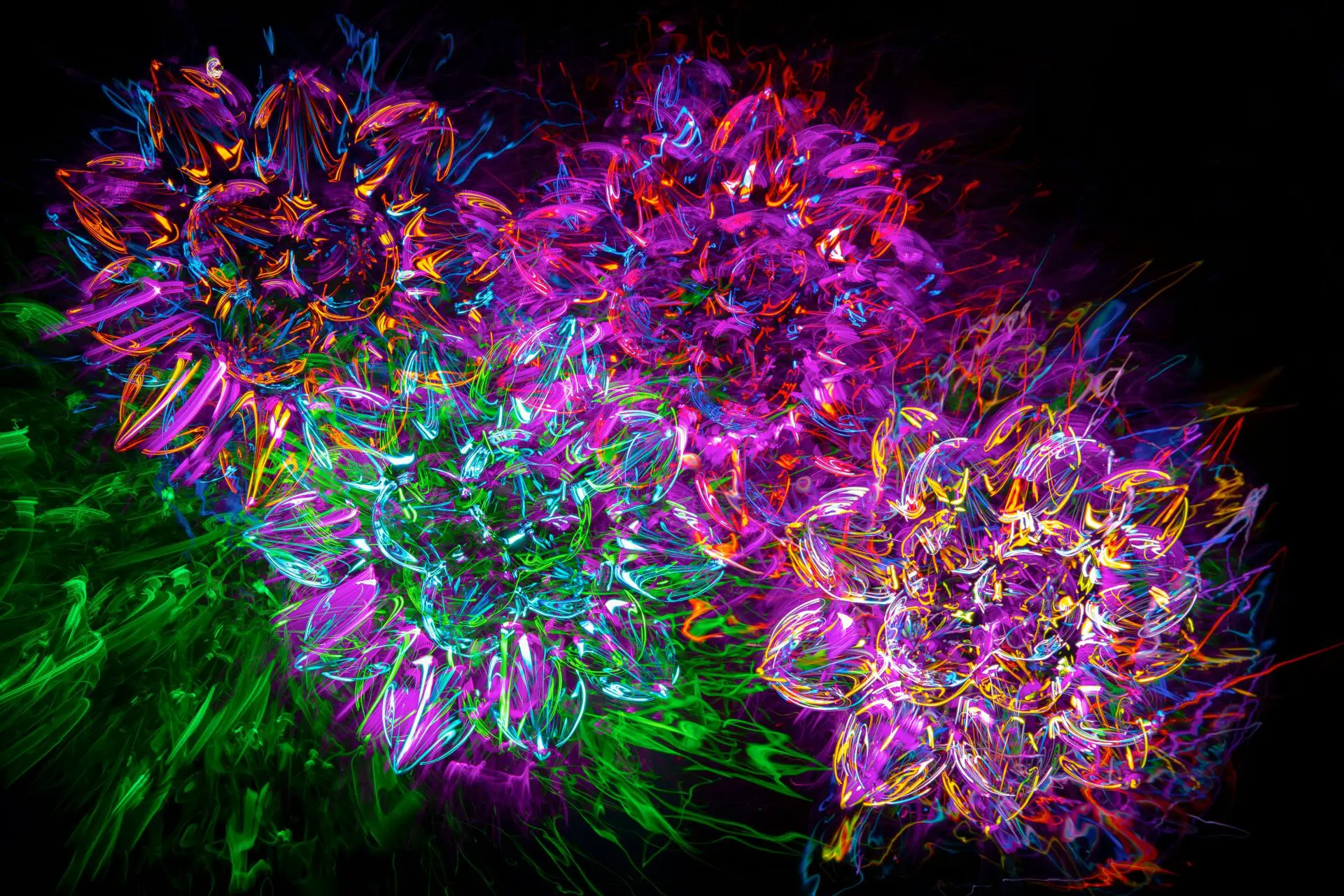Discovering the Root of Suffering

Looking for more amazing products? Check out our online store and explore our collection here! Happy shopping!
Before diving in, please note: This post is for informational purposes only. If you’d like to know more about how we approach topics, feel free to check out our friendly Disclaimer Page.
Hey there, amazing readers! 
We’re committed to delivering quality posts, and your support (even just sticking around despite the ads) means everything to us. So, bear with us, and thanks for helping us keep the good vibes rolling. Now, on to the fun stuff!
TRANSLATE BUTTON AT THE END OF THE ARTICLE
A Quick Overview
Suffering is a universal experience that all humans encounter at some point in their lives.
It can manifest in various forms such as physical pain, emotional distress, or existential angst.
Understanding the root of suffering is crucial for finding ways to alleviate it and achieve inner peace.
By delving into the concepts of attachment, desire, ignorance, ego, and fear, we can unravel the complex web of suffering and learn how to transcend it.
Through acceptance, compassion, and self-awareness, we can pave the way towards enlightenment and freedom from suffering.
Understanding the Concept of Suffering
Suffering, in the context of spiritual and philosophical teachings, is often seen as a result of the human condition.
It is the dissatisfaction and emotional distress that arises from our attachment to impermanent things and our resistance to change.
The Buddha famously stated that "life is suffering," highlighting the inherent dissatisfaction and impermanence of worldly existence.
By recognizing the transient nature of all things, we can begin to understand the root cause of suffering and work towards transcending it.
The Role of Attachment in Suffering
Attachment is a key factor in the perpetuation of suffering.
When we become attached to people, possessions, or outcomes, we create expectations that may not be met.
This leads to disappointment, frustration, and emotional distress when things do not go as planned.
By letting go of attachment and cultivating a sense of detachment, we can free ourselves from the grip of suffering.
Practicing non-attachment allows us to appreciate the present moment and accept things as they are, without clinging to desires or outcomes.
Exploring the Influence of Desire
Desire is another potent source of suffering.
When we crave material possessions, success, or approval from others, we create a sense of lack within ourselves.
This insatiable desire for more can lead to feelings of inadequacy, jealousy, and unhappiness.
By understanding the transient nature of desires and the impermanence of worldly pleasures, we can begin to transcend the cycle of suffering.
Cultivating contentment and gratitude for what we have can help alleviate the never-ending pursuit of desires that only perpetuate our suffering.
How Ignorance Contributes to Suffering
Ignorance, or the lack of self-awareness and understanding, is a significant contributor to suffering.
When we are unaware of our thoughts, emotions, and underlying beliefs, we become slaves to our conditioned patterns of behavior and reactions.
This ignorance blinds us to the true nature of reality and keeps us trapped in a cycle of suffering.
By cultivating mindfulness and self-inquiry, we can uncover the root causes of our suffering and break free from the chains of ignorance that bind us.
Unpacking the Impact of Ego
The ego, or the sense of self that identifies with our thoughts, emotions, and experiences, plays a crucial role in perpetuating suffering.
When we are overly identified with our ego, we create a separation between ourselves and others, leading to feelings of superiority, inferiority, or judgment.
This sense of separation breeds conflict, competition, and comparison, which ultimately result in suffering.
By transcending the ego and realizing our interconnectedness with all beings, we can cultivate empathy, compassion, and unity that dissolve the boundaries that fuel our suffering.
The Relationship Between Pain and Suffering
Pain is an inevitable part of the human experience, whether it be physical, emotional, or psychological.
While pain is a natural response to external stimuli, suffering is our mental and emotional reaction to that pain.
It is the resistance, aversion, or attachment to pain that amplifies our suffering.
By learning to accept pain as a temporary experience and developing resilience in the face of adversity, we can minimize the suffering that arises from it.
This shift in perspective allows us to navigate through life’s challenges with grace and equanimity.
Identifying Patterns of Suffering
Suffering often follows repetitive patterns that stem from our conditioning, beliefs, and past experiences.
By observing our thoughts, emotions, and behaviors with mindfulness and self-reflection, we can identify the recurring patterns that contribute to our suffering.
Whether it be self-criticism, fear of failure, or seeking external validation, recognizing these patterns is the first step towards breaking free from them.
By bringing awareness to these habitual tendencies and cultivating a sense of presence, we can interrupt the cycle of suffering and create space for healing and transformation.
The Connection Between Suffering and Fear
Fear is a powerful emotion that often underlies our experiences of suffering.
Whether it be fear of the unknown, fear of rejection, or fear of failure, our fears can drive us to avoid discomfort and cling to safety and familiarity.
This resistance to change and avoidance of discomfort only serve to perpetuate our suffering.
By confronting our fears with courage, vulnerability, and acceptance, we can transcend the grip of fear and open ourselves up to growth, transformation, and liberation from suffering.
Overcoming Suffering Through Acceptance
Acceptance is a key component in overcoming suffering.
When we resist reality as it is and cling to our expectations, we create inner turmoil and emotional distress.
By practicing radical acceptance of the present moment and letting go of our attachment to outcomes, we can find peace and equanimity amidst life’s uncertainties.
Acceptance does not mean resignation or passivity but rather a willingness to embrace reality with an open heart and mind.
Through acceptance, we can release the grip of suffering and cultivate a sense of inner peace and contentment.
Cultivating Compassion to Alleviate Suffering
Compassion is a powerful antidote to suffering.
When we extend kindness, empathy, and understanding towards ourselves and others, we create a sense of connection and unity that transcends the barriers of separation and judgment.
By cultivating self-compassion and compassion for all beings, we can alleviate the suffering that arises from ego, attachment, and fear.
Compassion opens our hearts to the suffering of others and motivates us to alleviate their pain and contribute to the greater good.
Through acts of kindness, generosity, and service, we can create a ripple effect of healing and transformation that transcends individual suffering.
Finding Peace by Addressing the Root Cause
To find lasting peace and freedom from suffering, it is essential to address the root causes of our inner turmoil and distress.
By delving deep into the realms of attachment, desire, ignorance, ego, and fear, we can uncover the core beliefs and conditioning that fuel our suffering.
Through self-inquiry, mindfulness, and reflection, we can unravel the complex web of suffering and transform it into a path of awakening and liberation.
By shining the light of awareness on our inner landscape and embracing all aspects of ourselves with love and compassion, we can find peace and fulfillment that transcends the limitations of our conditioned minds.
The Path to Enlightenment and Freedom from Suffering
The path to enlightenment and freedom from suffering is a journey of self-discovery, self-realization, and spiritual awakening.
By cultivating mindfulness, self-awareness, and compassion, we can transcend the limitations of our ego minds and connect with our true essence.
Through practices such as meditation, yoga, contemplation, and self-inquiry, we can deepen our understanding of the nature of reality and liberate ourselves from the chains of suffering.
Enlightenment is not a destination to be reached but rather a state of being that arises from the direct experience of our interconnectedness with all beings and the universe.
By walking the path of self-transformation and self-realization, we can find peace, joy, and liberation that transcend the boundaries of suffering and lead us to the ultimate truth of our existence.
Conclusion
Discovering the root of suffering is a profound journey of self-discovery, self-realization, and spiritual awakening.
By unraveling the complex web of attachment, desire, ignorance, ego, and fear, we can transcend the limitations of our conditioned minds and find peace and freedom from suffering.
Through acceptance, compassion, and self-awareness, we can pave the way towards enlightenment and liberation from the grip of suffering.
By addressing the root causes of our inner turmoil and distress, we can transform suffering into a path of awakening and liberation.
May we all walk the path of self-transformation and self-realization towards the ultimate truth of our existence.

The Enlightenment Journey is a remarkable collection of writings authored by a distinguished group of experts in the fields of spirituality, new age, and esoteric knowledge.
This anthology features a diverse assembly of well-experienced authors who bring their profound insights and credible perspectives to the forefront.
Each contributor possesses a wealth of knowledge and wisdom, making them authorities in their respective domains.
Together, they offer readers a transformative journey into the realms of spiritual growth, self-discovery, and esoteric enlightenment.
The Enlightenment Journey is a testament to the collective expertise of these luminaries, providing readers with a rich tapestry of ideas and information to illuminate their spiritual path.
Our Diverse Expertise
While our primary focus is on spirituality and esotericism, we are equally passionate about exploring a wide range of other topics and niches 

To ensure we provide the most accurate and valuable insights, we collaborate with trusted experts in their respective domains 
Our blog originally focused on spirituality and metaphysics, but we’ve since expanded to cover a wide range of niches. Don’t worry—we continue to publish a lot of articles on spirituality! Frequently visit our blog to explore our diverse content and stay tuned for more insightful reads.
Hey there, amazing reader! 
Check out our store here and take a peek at some of our featured products below! Thanks for being awesome!










